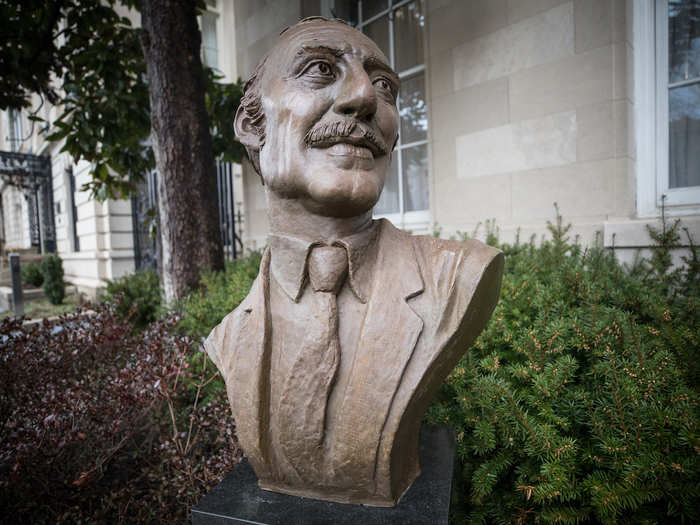
Alan McPherson: Letelier was the former Chilean ambassador to the United States, who had served under the Marxist but democratically elected president, Salvador Allende, from 1970 to 1973. By 1973, Letelier had come back to Chile and served as minister with three portfolios in quick succession.
When the Pinochet coup came on September 11, 1973, the junta jailed Letelier, then minister of defense, for a year. In late 1974, Letelier was exiled and ended up in Washington as an activist for the Institute for Policy Studies, a leftist think tank. Pinochet's regime targeted him because he convinced a large Dutch corporation to disinvest from Chile and because he was a potential unifier of Chilean exiles.
We should not forget that the assassination also killed Ronni Moffitt, a 25-year-old US colleague at IPS who happened to be in the car with Letelier.

McPherson: The bombing was the work of the Directorate of National Intelligence, the Chilean secret police, otherwise known as DINA. Its head, Manuel Contreras, ordered the chief of operations, Pedro Espinoza, to find someone to assassinate Letelier. Espinoza gave the order to Michael Townley, an American-Chilean who had lived in Santiago for years and had embraced the Pinochet regime. He was also an explosives expert.
So he and a Chilean came to the United States and connected with a handful of New Jersey-based Cuban Americans. Their motivation was to improve their status among Cuban-American terrorists by doing this favor for the Letelier regime. In the summer of 1976, they helped Townley surveil Letelier, make the bomb, and install it under Letelier's Chevelle. Two Cuban-Americans drove the car behind Letelier's, from which they detonated the bomb.
While everyone involved suspected that Pinochet was the one who gave Contreras the original order, there was no substantive evidence. Only in 2015 did the CIA release a 1987 report in which it came to this conclusion. So while the evidence is still not definitive, it is quite clear that Pinochet himself was the intellectual author of this crime.

McPherson: It was one of hundreds of deaths under Operation Condor, which was a conspiracy among right-wing South American dictatorships and military regimes to hunt political opponents outside their borders.
But Letelier-Moffitt was one of very few assassinations that took place outside South America. Another prominent Chilean exile was killed in Rome.
Operation Condor was a reflection of the impunity that the South American dictators thought they enjoyed in the 1970s and 1980s. Condor also spoke to the transnational nature of right-wing militaries, since Townley took part in several assassinations and usually connected with a different fascistic group in each country.

McPherson: As far as we know, the US government did nothing directly to encourage or discourage the Letelier assassination. We do know that Operation Condor was well known at the CIA and elsewhere, and the Department of Defense even lent it some intelligence capabilities. We also know that the Henry Kissinger State Department indirectly encouraged Pinochet.
Two instances in the summer of 1976 are noteworthy.
In the first, Kissinger met with Pinochet, and when Pinochet brought up Letelier explicitly as one of many exiles who were a thorn in his side, Kissinger said nothing.
In the second, Kissinger signed a diplomatic cable meant for US ambassadors in South America to tell dictators that the State Department knew of and opposed their plans to kill opponents abroad. Yet the ambassadors never warned the dictators and, five days before the assassination, Kissinger recalled the cable, saying he wanted no further action on the matter.
Such lack of action could only be construed by Pinochet and DINA as a green light to target exiles.

McPherson: Michael Townley was expelled to the United States and spilled the beans. All five Cuban-Americans involved served some jail time, but three of them were soon freed on technicalities.
In Chile, after the FBI and the Department of Justice fingered the regime, DINA was disbanded and Manuel Contreras retired. Later, when more heat descended, Pinochet freed some prisoners, lifted the curfew, and let some exiles back into the country.
In the 1980s, the assassination led to Democrats in Congress forcing the Reagan administration to pressure the regime to democratize, which helped persuade Pinochet to leave power in 1990.
When he did, the courts convicted Contreras and Espinoza, the first time that Cold War human-rights violators when to prison in all Latin America. The former died in prison and the second is still incarcerated. Pinochet [who died in 2006] was never tried for the Letelier assassination.
Most important, perhaps, is that the quest for justice that followed the assassination inspired many in Chile to pursue other violators of human rights, and today about 1,000 cases have been adjudicated.
The Letelier assassination helped bring about a revolution in human rights.
 10 Ultimate road trip routes in India for 2024
10 Ultimate road trip routes in India for 2024
 Global stocks rally even as Sensex, Nifty fall sharply on Friday
Global stocks rally even as Sensex, Nifty fall sharply on Friday
 In second consecutive week of decline, forex kitty drops $2.28 bn to $640.33 bn
In second consecutive week of decline, forex kitty drops $2.28 bn to $640.33 bn

Copyright © 2024. Times Internet Limited. All rights reserved.For reprint rights. Times Syndication Service.